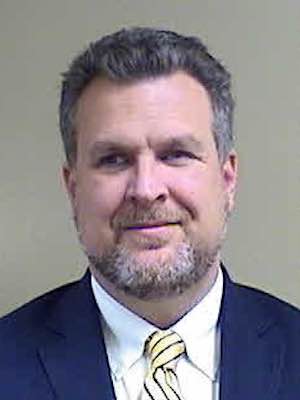
Editor’s note: “Look Back” is a series designed to highlight articles from the Good Faith Media archives that remain relevant or historically interesting. If you have an article from our archives that you’d like us to consider including in this series, please email your suggestion to [email protected]. A version of this article first appeared at EthicsDaily.com on Oct. 7, 2010. At the time of publication, Self was the oncology chaplain at Baptist Health Medical Center in Little Rock and an adjunct instructor of ethics at the University of Arkansas at Little Rock.
Secretary of State Hillary Clinton and Human Services Secretary Kathleen Sebelius apologized last week to the Guatemalan people for gross ethics violations committed by U.S. researchers in the 1940s.
From 1946-48, a team of researchers attempted to ascertain the effectiveness of penicillin on the treatment of sexually transmitted diseases, specifically syphilis.
A disturbing reminder of the well-known Tuskegee syphilis study, the Guatemalan research was discovered by Susan M. Reverby of Wellesley College while she was researching her recent book, “Examining Tuskegee: The Infamous Syphilis Study and Its Legacy.”
Reverby made a connection between Tuskegee and the Guatemalan experiments in the person of Dr. John C. Cutler, the lead researcher in Guatemala who later played a significant role in Tuskegee.
According to records, Cutler and other researchers deliberately infected 696 people with syphilis and other STDs. Early on, incarcerated men were infected by encouraging them to have sex with infected prostitutes. For the subjects who failed to become infected, researchers applied positive cultures directly to the subjects’ genitals and into other open wounds.
Later, researchers used mental hospital patients for additional subjects. Unlike Tuskegee, the Guatemalan subjects were eventually treated with penicillin. However, evidence suggests that many were not treated effectively, and one research subject died.
The images of such deplorable research practices recall the horror of Tuskegee as well as Nazi Germany.
The irony of the era should not be missed. The Guatemalan experiment occurred at the same time courts and ethicists were establishing foundational principles of bioethics and human experimentation following the atrocities committed by Nazi Germany.
The Nuremberg trial developed 10 principles for determining the permissibility of experimentation on human beings. Called the Nuremberg Code, these principles focus on ensuring the protection of research subjects. The 10 principles focus on voluntary consent, the physical and mental protection of subjects, and the cost-benefit of the research.
Today, researchers are morally obligated to ensure that patients and research subjects are well informed about the study and its possible side effects. Protecting a person’s right to refuse to participate in research reflects the value researchers place on the human spirit. By denying an individual’s autonomy, we transform him or her from a free-thinking and feeling person into a thing to be used and manipulated.
In addition to autonomy, today’s researchers are obligated to respect the safety of research subjects. A subject’s well-being must be taken into consideration. It is considered immoral to place a subject in a situation that may result in emotional trauma, dangerous side effects or even death. These types of restrictions ensure that researchers are reminded that their subjects are actual human lives – lives that will go on after the study is completed.
In essence, the Nuremberg Code attempts to remind us that research subjects are not objects to abuse. They are flesh-and-blood people with hopes, dreams and passions.
The horror of Guatemala, and for that matter of Tuskegee and Nazi Germany, is that human beings were made into things, things to poke and prod. They became things to help us climb higher on the ladder of knowledge. The truth of the matter is that these subjects were people. By stealing their humanity, the scientists transformed themselves into monsters and lost the core of their humanity.
While they were developing cures that could help all of humanity, they stole some of the dignity and honor due the human race. It is only by honoring the authentic personhood of others that we are able to realize our own value. As we stand in an age dominated by science and medicine, we need to be reminded that patients and research subjects have eternal value.
It is important to remember that most medical advances depend on human research. Whether a new vaccine or a heart transplant, human subjects were involved in these advances. Research subjects are giving humanity a gift as they help scientists develop new cures. Therefore, we must respond to this generosity in kind.
As Christians, we must strive to view patients and research subjects with the eyes of Christ. We must be reminded that the image of God resides in these people, and researchers must be reminded that they are charged with protecting those involved in their studies.
In fact, it is far more than the moral thing to do; it is the human thing to do.
Senior Staff Chaplain and Clinical Ethicist at the Baptist Health Medical Center in Little Rock, Arkansas.

